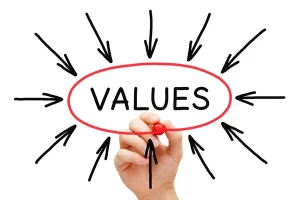Ownership on the Job
Ownership Defined
When one carries out the organizational assignments, projects, work/actions as if they are his own in a professional sense, he is in the mindset of ownership. He runs his work place/section/department as if he owns it and he is the ultimate boss. He positions himself as a kind of “Intrapreneuer” (an entrepreneur within the organizational boundaries). For him the rest of the organization is a conducive environment and his own boss and various other departments/sections are entities with a thread of interdependence tying them all.
Advantages of Practicing Ownership
- You become customer oriented and result oriented.
- You develop skills of taking responsibility and timely qualitative delivery.
- You develop a high sense of accountability.
- Your work is of high quality and defect free. No mother of a newly born baby has ever dropped her baby from her hands. After all, the newly born is her However, well-trained nurses have been found doing so.
- You become great implementer because ultimately you own the solutions of the organization and they are your
- You act like a boss and intrapreneur and that paves the way to becoming really good and effective senior manager in times to come.
- You become visible to top/senior management because of your superior performance. You may bag more challenging assignments/projects.
- You are likely to feel motivated to acquire the desired managerial competencies better than the non-owner types. And then, you will have a wonderful combination of having ownership with excellent managerial competencies taking you to new heights of effectiveness.
You Have Choices
You have the freedom and choice of any of the following:
- You may become angry with some thing or some one in the organization, you may rebel, you may show escapist tendencies and you may finally even quit.
- You may carry on doing your job because of some fear, say, fear of getting fired or out of obedience.
- You may do your job at just about a level where you may be rewarded. You may not exceed that standard and may not utilize your talents fully.
- You feel duty bound, cheerful and thus, cooperative performing your job.
- You have developed a mindset of commitment towards your job and you like your job immensely.
- You have found a meaning and a sense of creation on your job and thus, it excites you to take it’s ownership– you do it as if it’s your own job.
Action Plan (“To Do” Things) to Develop Ownership
- He takes up “projects” (and not the jobs or activities) and is really serious about them- small or big is immaterial. But his/her projects will make a difference to those for whom they are meant. They are genuinely beneficial to all the concerned. “Projects” are his “products”. He must develop these products very well. He will have to work out “portfolio of projects” and it is dynamic work. Then, he/she remains focused on them.
- He sharpens his existing skills and adds more skills as necessary. He then masters those. He should renew himself from time to time. He needs to develop his curiosity about all kinds of things.
- In order that he can cover a larger ground and contribute more, he has to attract more people and more organizations; he should market his projects effectively. He should develop a clear understanding of what he wants to contribute and communicate to all prospective users. He must dream big, must dream lots.
- Even if he is single-handedly working, he is an “organization” and should position and project himself that way to all others effectively. Excellent “packaging” (design) helps a lot. He can make his own “logo”, his“mission” statement, his“differentiating/unique” factors- “identity”, his“brand”, his“trademark”. His business card and web site must speak for him. They are his public relations agents.
- He should keep on enlarging the list of his prospective clients and keep on communicating to them about what he can do for them. His “communication portfolio” has to be rich and large.
- Since he has to genuinely and immensely contribute towards his existing clients by providing them the highest value, they often become his support system for “word of mouth” publicity.
- Even if he is working single-handedly he has to carry out the functions of marketing, selling, product development, operations, customer service, communication/information management, planning and time management. He must develop flair for all these.
- He must have a good handle on how to make money (in genuine ways) (the financial management, pricing and negotiations). Money is important means to carry out genuine work and contribute really well.
- He should be fully and genuinely committed to his clients. They are his most important people. They should trust him. They should trust him for every thing- genuineness, quality, fairness, transparency, effectiveness, efficiency, timeliness, service and relations.
- Genuine professional is a great “time manager”. “Time” is the most wonderful resource he has got.
- Genuine professional has to finally implement and not just talk. So he has to be an out and out “doer”. He has to be internally motivated and enthusiastic to the core to “perform” and can’t afford to be lazy or to procrastinate.
- As he goes ahead delivering the projects he need not pity himself for any thing- failures, losses, hurt feelings, pains etc. He must not give any “excuses”. He does not have to compare with others and feel miserable or elated. He should develop optimism.
- “Project deliveries” have to be genuine and faultless- mark of excellence. Ultimately what matters is “performance”.




